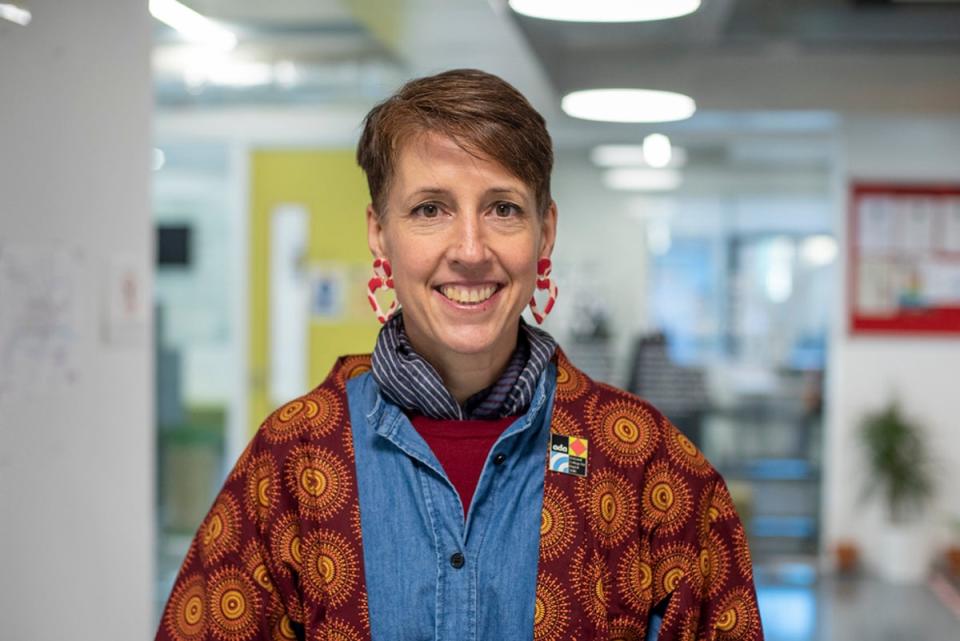With general elections approaching, at least one consensus seems to be emerging between the two main political parties: something needs to be done about young people’s digital skills.
As the digital economy expands to touch every aspect of life, the demand for IT intelligence is increasing across all sectors and businesses. However, secondary school students currently take about one hour of computer class per week and can drop it at the age of 14.
There are many voices in favor of taking compulsory IT courses. A recent House of Lords committee report recommends widespread curriculum reform to prepare students for a digital future and introduce a core digital literacy qualification.
The government’s response did not go that far, but it does acknowledge the barriers to teaching digital skills in the current computing curriculum, including available teaching time. It appears to be moving towards a greater focus on digital skills in key stage 3, saying it is “working with schools and other experts on this important issue”.
Meanwhile, Labor says teaching digital skills and navigating online platforms is “counter to the reality of young people’s lives”.
It points to “massive gaps” in the technical skills needed in some sectors where there are large numbers of vacancies, such as green technology, life sciences, digital and creative industries. If elected, he promises a “full expert-led review of the curriculum and assessment” aimed at delivering innovative reforms and “embedding digital, oral and life skills” in children’s learning.
Signs that criticism of the status quo is working will be welcomed by many, particularly in industry, business and utilities, who are looking for staff with complex problem-solving skills, as well as more advanced IT skills, alongside basic digital skills. and communication intelligence.
“In addition to learning multiplication tables and practicing handwriting, children should also practice touch typing.”
Becky Patel, Head of Education and Learning at TechSheCan
The lack of digital skills among the younger generation described as “digital natives” seems like a strange mismatch. But research shows that ubiquitous use of iPads and smartphones is essentially passive. A recent study by the London School of Economics, for example, found that only a small minority of young people are interested in creative digital opportunities, such as producing their own content.
In Becky Patel’s countless conversations with schoolchildren about what they want to do, not one of them said: “Becky, I want to be a software engineer.”
“They don’t know it’s a thing,” says Patel, head of education and training at TechSheCan, which campaigns for women and girls to be equally involved in creating and developing new tech businesses, products and services. “They name people’s uniforms or jobs their parents did. “Young people rarely question how digital technology actually works, who makes their devices and what goes behind it.”
Patel wants compulsory computer use to continue throughout school and its status to be raised to match that of maths and writing.
“In addition to learning their multiplication tables and practicing handwriting, children should also practice touch typing,” she adds.
Computing taught in schools is not keeping pace with real-world developments, according to Katherine Bond, who leads PwC’s technology degree apprenticeships.
“It is difficult for the curriculum to keep up with the pace of technology development,” he says. “For example, cybersecurity was missing, but this is a huge growth area in technology and we have apprenticeships specific to that. “We know there will be many more young people interested in this topic, but they don’t have much understanding of it because they have never touched it at school before.”

These are the shortcomings of GCSE computer science; St Paul’s Girls School in west London does not offer this. Instead, the school designed its own competence in computer science and creative technologies that develop, motivate and externally supervise students.
St Paul’s Girls’ secondary school mistress Sarah Fletcher wants to see a comprehensive rethink of the entire secondary school assessment regime, saying: “We have a fundamental duty to look at what’s happening in the digital world. When you look at stage 3 information technology (IT), computing and stage 4 computing across the country, you see very few children doing this. In our system, students can quit anything related to technology at the age of 14. How can this happen?
Beyond the school curriculum, further education and specialist colleges in London are working hard to close the technical skills gap and help young people understand the range of opportunities open to them.
For example, a new technical college in Lambeth, part of South Bank Colleges, is inspiring young people with a vocational and technical curriculum in a cutting-edge workplace environment.
Ada National College for Digital Skills (named after 19th-century mathematician Ada Lovelace, who is considered the first computer programmer) was founded in 2016 with the aim of closing the digital skills gap and training the next generation of diverse digital talent.
Young people are studying computers alongside A-levels, with input from industry partners including Deloitte, Bank of America, King and Salesforce.
Its new campus in Victoria serves approximately 300 sixth form students and students in digital degree apprenticeship programmes.
“Technology is everywhere: healthcare, banking, green energy, education. AI technology really touches all areas,” said Tina Götschi, Ada’s sixth form principal. “We want to change the narrative around digital skills training; it’s a great field to get into and you need to have a background in computing to study or apprentice in digital.” There’s no need.”
One of the myths about technology that Götschi tries to dispel is that technology is all about coding. “Not everyone writes code all the time,” he says. “Of course, all our students learn to code, but this does not mean that they will become software developers. Some will work as technology consultants or delve into cyber or creative fields such as games. “There are so many opportunities for great careers.”
Evening Standard Step Up Expo will take place at London Olympia from 28-29 June 2024 – Click here for more information and tickets